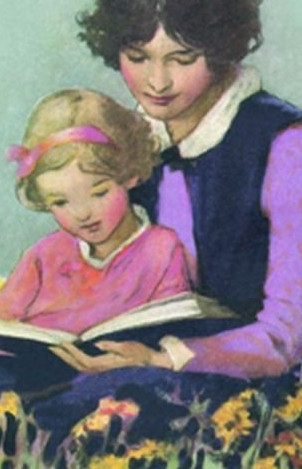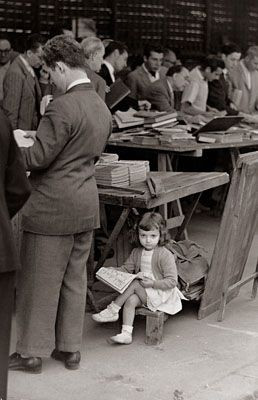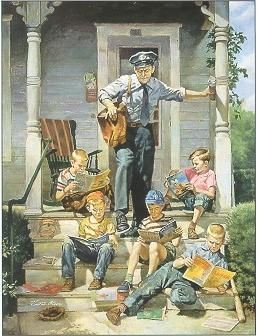Literacy Blogs
- All
- 3-cueing
- academic learning time
- academic vocabulary
- accommodations
- accountability testing
- Active View of Reading
- adolescent literacy
- afterschool programs
- alphabet
- amount of instruction
- amount of reading
- argument
- assessment
- auding
- author awareness
- automaticity
- balanced literacy
- beginning reading
- Book Buddies
- Book Flood
- challenging text
- classroom organization
- close reading
- coaching
- cohesion
- Common Core State Standards
- complex text
- comprehension strategies
- content area reading
- context analysis
- curriculum materials
- Daily 5
- decoding
- departmentalization
- DIBELS
- dictionary skills
- digital texts
- disciplinary literacy
- dyslexia
- early interventions
- effective teachers
- Emily Hanford
- executive function
- family literacy
- fingerpoint reading
- foundational skills
- graphic novels
- guided reading
- heterogeneous grouping of students
- homework
- improving reading achievement
- independent reading
- independent reading level
- informal reading inventories
- informational texts
- instructional level
- invented spelling
- jigsaw instruction
- knowledge
- leadership
- learning disabilities
- Lexiles
- linguistic comprehension
- listening comprehension
- literacy charities
- literacy policy
- literary interpretation
- main idea
- morphology
- motivation
- narrative text
- National Early Literacy Panel
- nonsense words
- oral language
- oral reading fluency
- paraphrasing
- Pause, Prompt, Praise (3P)
- personalized learning
- phonemes
- phonemic awareness
- phonics
- press and media
- principals
- prosody
- Readers' Workshop
- reading comprehension
- reading disabilities
- reading intervention
- reading levels
- reading models
- Reading Recovery
- reading research
- reading skills
- reading strategies
- reading to children
- reading wars
- reading-writing relations
- remedial reading
- rereading
- Response to Intervention
- Scarborough's Rope
- science of reading
- seatwork
- semantics
- sentence comprehension
- sequence of instruction
- set for consistency
- set for variability
- shared reading
- shared reading
- sight vocabulary
- simple view of reading
- Simple View of Reading
- small group instruction
- social studies
- sound walls
- Special Education
- speech-to-print phonics
- spelling
- stamina
- summarizing
- Sustained Silent Reading
- syllabication
- syntax
- syntax
- testing
- text complexity
- text interpretation
- text reading fluency
- text structure
- theme
- think-pair-share
- trauma
- visualization
- vocabulary
- word walls
- writing
- zone of proximal development (ZPD)
How to Teach Writing in Kindergarten Part II
Teacher question: What are your thoughts about writing in Kindergarten? Is there a scientifically-researched instructional methodology that we should implement. We’ve been trying to embed writing opportunities within the literacy block related to the whole group listening comprehension text. Should students draw in relation to the prompt or question and then label, dictate, and/or write? Should teachers model phonetic spelling of words or the correct spelling? Any help would be appreciated. Shanahan response: Last week I provided a partial answer to this question. My response emphasized the importance of kindergarten writing and the value of kindergarten teachers facilitating and teaching writing. I suggested amounts of time to devote to beginning writing instruction ...
How to Teach Writing in Kindergarten
Teacher question: What are your thoughts about writing in Kindergarten? Is there a scientifically-researched instructional methodology that we should implement. We’ve been trying to embed writing opportunities within the literacy block related to the whole group listening comprehension text. Should students draw in relation to the prompt or question and then label, dictate, and/or write? Should teachers model phonetic spelling of words or the correct spelling? Any help would be appreciated. Shanahan response: Indeed, kindergartners should be writing, and kindergarten teachers should be facilitating and teaching writing. Unfortunately, we don’t have a particularly rich scientific-research base on beginning writing instruction. There are many observational studies that give us a sense of what may be ...
Reading Recommendations for the Five and Unders
Recently I was interviewed by Fatherly, a website that focuses on providing parenting advice to dads. They wanted some book recommendations for babies, toddlers, and kindergartners. This link will connect you to the first in their series on this topic, and below I provide elaborated answers to these timely questions. https://www.fatherly.com/play/books/best-books-for-babies/ https://www.fatherly.com/play/best-books-for-toddlers/ https://www.fatherly.com/play/books/best-books-for-your-kindergartner/ What is the ideal form of baby books? Babies very early on exhibit what is called the palmar reflex… that is if something touches or grazes their palms, their little hands lock on it. I guess that keeps them from falling out of trees or something. Try touching a finger or your hair ...
Which is best? Analytic or synthetic phonics?
Blast from the Past: This blog was first posted on February 4, 2018 and was revised and reposted on August 28, 2021. Recently, a research study on "connected phonation" appeared (Gonzalez-Frey & Ehri, 2021) that addressed a problem with synthetic phonics discussed below. It found that teaching students to sound out words in a more blended fashion improved student reading performance. This reminded me of a study that Suzanna Pflaum and Ernie Pascarella did back in the 1980s; they found that explicitly teaching blending also improved synthetic phonics outcomes. The point is that one of the major problems of synthetic ...
On Science Reading, Informational Text, and Reading Pullout Programs
Question: I came across your article Informational Text: Or How Thin Can You Slice the Salami and wanted to reach out to you. I'm analytical and I work with other analytical thinkers. But I am also surrounded by reading specialists, literacy coaches, etc. who think differently. When I visit schools, I observe students who are analytical. They're interested in facts and the world. They prefer expository books to narrative nonfiction or fiction. I'm concerned that young analytical thinkers are being underserved by literacy educators, who are more comfortable with narrative writing. Shanahan responds: Your letter came at a very good time. Recently, I’ve been working ...
Should We Test Reading or DIBELS?
Teacher question: I teach first-grade and this year I switched schools. In my previous school, we tested our students with DIBELS three times a year. The idea was to figure if the students were having trouble with decoding so that we could help them. That isn’t how my new principal does it. He has us giving kids a reading comprehension test with leveled books. I asked him about it and he said that the district didn’t care about DIBELS and he didn’t care about DIBELS (he only cares about how kids do on the ____ test). I’m confused. I thought the ...
The New Reading Program Implementation Blues
Teacher question: I am a reading coordinator. We are in our first year of implementing a new reading program. As we have rolled out the new curriculum, we've been explicit about the reading instructional practices and routines that we expect to see used each day. We’ve had lots of PD. How else are we going to know the impact that the series has on our achievement data if we don't have fidelity our first year? That's the direction that we've taken. I'm sure that you appreciate the “change” process. We've changed a lot of behaviors but I'm afraid that we haven't changed a lot of beliefs of teachers about reading instruction. Our mid-year reading performance data ...
More Bad Ideas about Why We Should Avoid Complex Text Reading Instruction
Welcome to 2018. During the interim, several intriguing questions have been submitted and soon I’ll be taking those on. This posting responds not to your questions, but to some public comments made by various colleagues concerning complex text and its use in instruction. My comments are responses to their handwringing over the requirement that we teach kids to read complex text. We should be concerned about the use of complex text for instruction because text complexity has a negative correlation with reading comprehension and reading fluency. The premise here is correct, but the conclusion is false. This is what logicians refer to as the ...
Have a Happy and Literate Holiday
No blog today, just holiday greetings. Wishing you and yours a wonderful and literate Christmas, Chanukah, Kwanzaa, and New Years. Thank you for following my blog. I look forward to our continued relationship in the coming year.
What's the Difference Between Close Reading and Teaching Complex Text?
Teacher question: Aren’t “teaching with complex text” and “teaching close reading” really the same idea, just in different words? Some of my teachers are confused by these terms. Some of them, like me, think they are the same idea, while others think they are really two different standards. How can I clarify this for them? Shanahan response: I must admit that the first time this confusion presented itself to me, I was pretty darned surprised. I was supposed to make two presentations to some California teachers—an AM and a PM talk, and the reading supervisor wanted to know the two titles. I suggested one ...









